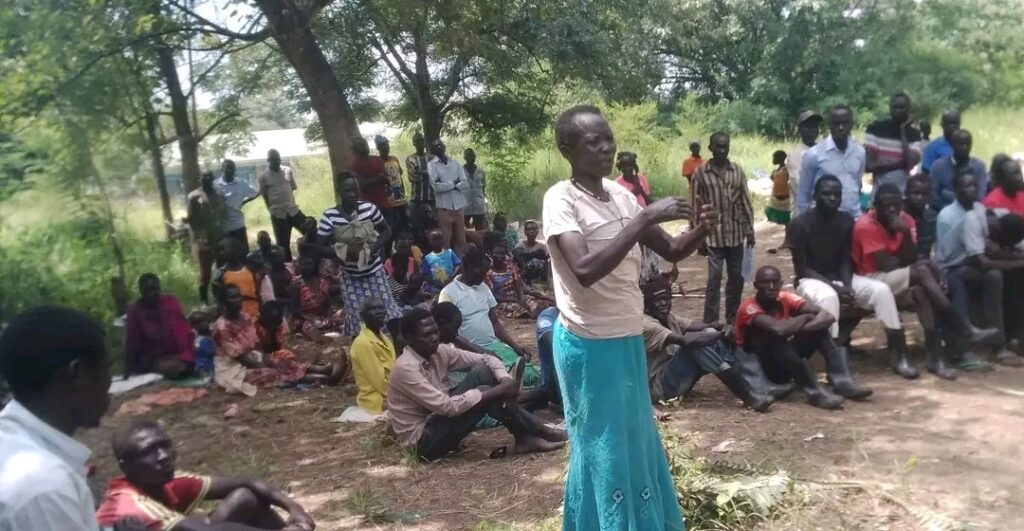More than 16,000 people have been displaced following recent clashes between the Uganda People’s Defense Forces (UPDF) and the South Sudan People’s Defense Forces (SSPDF) in Bori Boma, Kajo-Keji County, creating an urgent need for food and shelter.
The fighting, which erupted July 28 in Nyainga Muda village, stemmed from a border dispute between Uganda and South Sudan. The UPDF was accused of attacking an SSPDF outpost, resulting in casualties and mass displacement.
Moses Pijakajo, secretary of the Relief and Rehabilitation Commission (RRC) in Kajo-Keji County, told Radio Tamazuj that over 2,000 households—totaling 16,034 people—have been registered across six locations.
“We have registered the IDPs from various locations—Sunyu, Wota Kujong, Kinu, Mere Kugga, Kare in Liwolo, and Logo IDP Camp,” Pijakajo said. “In terms of humanitarian support, there has been no response yet. It’s only local contributions from the community. We hope to deliver food items soon, but we face logistical challenges.”
Displaced civilians described dire conditions. Betty Kiden, a victim of the clashes, said many are sheltering under trees with no food or medical supplies.
“We have been displaced from Nyainga Muda. The Lugbara youth attack anyone who returns—they beat or kill people,” Kiden said. “Children are missing, and pupils can’t prepare for exams. We need food, shelter, and medicine.”
Ernesto Tumiya, executive chief of Bori Boma, said Ugandan youth continue to threaten displaced people attempting to retrieve food from their farms.
“People are starving. A woman was chased away by Aringa youth yesterday—she was only rescued by others,” Tumiya said. “We urge both governments to intervene so our people can return home safely.”
Kajo-Keji County Commissioner Wani Jackson Mule warned that ongoing tensions are preventing access to farmland.
“Youth from both sides roam the area, making it risky for IDPs to reach their crops,” he said. “With heavy rains and no shelter, children and pregnant women are especially vulnerable. We need immediate aid.”




